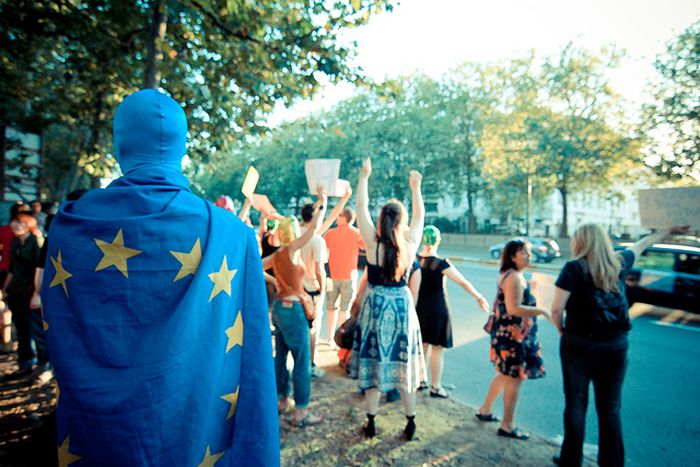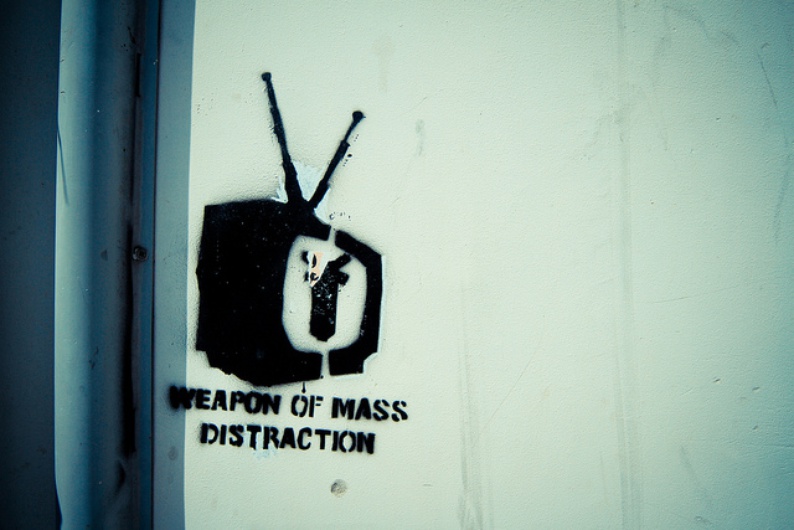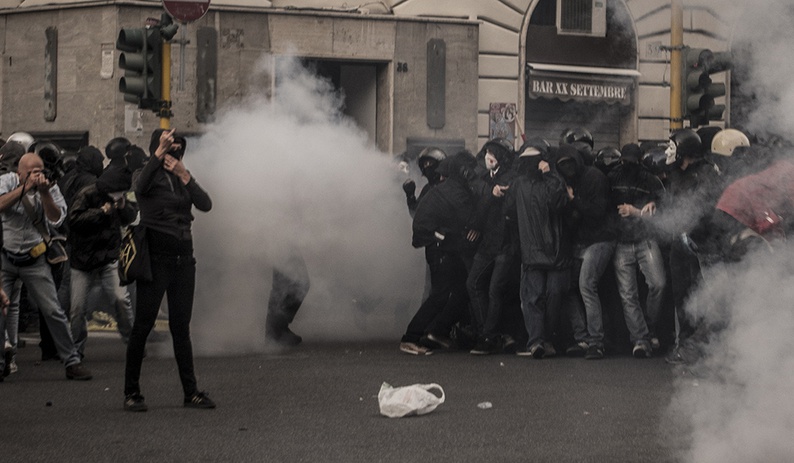
It's Time for A Generational Takeover
Published on
|Opinion| Rather than turning their backs on the democratic system, young people need to get engaged and go out and vote, now more than ever, in order to protect their interests, fight discrimination, and safeguard democracy against an assault from the far-right.
With less than two months to go until the European elections the EU stands at an important juncture. Inequality has grown over the past five years and European political engagement is at an all time low as Europeans have become increasingly exasperated with austerity policies and a lack of imagination by the political establishment. No more is this sense of hopelessness felt than among young people, with over 5 million under 25s unemployed across the EU.
Patronising Blather
When the British comedian Russell Brand stated last year that he had never voted and that “the current political system is nothing more than a bureaucratic means for furthering the augmentation and advantages of economic elites” he not only attracted headlines, he also spoke to many young people who were tired of the patronising blather that many middle aged politicians wheel out at election time. Six months on the video of his interview has almost 10 million hits on the BBC’s Newsnight youtube channel, over nine million more than any other video.
While Brand’s rhetoric may speak to the scruffy anarcho-syndicalist student versions of ourselves, it is fundamentally flawed: as young people have withdrawn from the democratic system their interests have become increasingly marginalised. Rather than turning to protests, community action groups or organising politically-themed sewing circles, all forms of political expression among young people are in decline. As a result governments now overwhelmingly serve older people; which increasingly means richer people.
For an example of what happens when young people don’t vote we need to look no further than the UK. The UK has the lowest turnout of under 30s at elections in the EU, it has also witnessed some of the most arbitrary measures against young people. University tuition fees of over €10,000 per year would be unthinkable in other member states where young people are more likely to express their dissatisfaction at the polling booth. The government has already promised to strip young people under 25 of their right to unemployment benefits if re-elected. By contrast older people have been largely protected, retaining free public transport and TV licenses. This despite the fact that the retired have comparatively improved their economic situation since the onset of the crisis, while youth and child poverty has grown.
 The sad reality is that when finance Ministers sign off austerity budgets aimed at older people they are committing political suicide, when they aim austerity measures towards young people they are in for a few harsh words on Twitter.
The sad reality is that when finance Ministers sign off austerity budgets aimed at older people they are committing political suicide, when they aim austerity measures towards young people they are in for a few harsh words on Twitter.
But something even more disconcerting is also happening, in addition to moving towards a more unequal society we are also moving towards a more xenophobic and nationalistic Europe, with the extreme-right slowly growing during the crisis, capitalising on the general dissatisfaction created by economic instability and simultaneously stoking ethnic and social tensions. Their semi-political diatribe is in total opposition to the values of our generation: young people are more open, tolerant and progressive than previous generations. But young people have been made to feel irrelevant and have thus removed themselves from the debate. Many now look on passively at the disproportional and dangerous surge in support for parties that, in theory, should not be more than an impertinent and irritating minority.
Young people need to stand up, claim their rights and demand a Europe that is defined by solidarity and tolerance, rather than division, fear and elitism. Social media, protests and being involved in NGOs are important tools to change society, but the most important is still the most mundane: ticking a box on a sheet of paper. Simply by participating in elections young people will increase their relevance and promote their aspirations.
 It can be irksome to vote for parties that haven’t done enough to protect your interests, or have stood by and watched your unemployment benefits being cut with little more than a whimper; but post-election when the stats are being totted up politicians will see that they now need to keep our demographic happy to stay in power. If young people build on this by getting involved in political parties and changing them from within we could see some major changes between now and the next elections. We can also help stop Europe from becoming a dangerous, reactionary and isolated place.
It can be irksome to vote for parties that haven’t done enough to protect your interests, or have stood by and watched your unemployment benefits being cut with little more than a whimper; but post-election when the stats are being totted up politicians will see that they now need to keep our demographic happy to stay in power. If young people build on this by getting involved in political parties and changing them from within we could see some major changes between now and the next elections. We can also help stop Europe from becoming a dangerous, reactionary and isolated place.
Don’t be fooled by those that say “politicians are all the same”, a quick glance at myvote2014.eu will show how different their perspectives can be. Even more important is that some politicians believe in tolerance and equality, while some do not. The challenge is huge, nothing short of a democratic revolution will do. Our parents’ generation is losing economic and political control of Europe. It is up to us to win it back.



